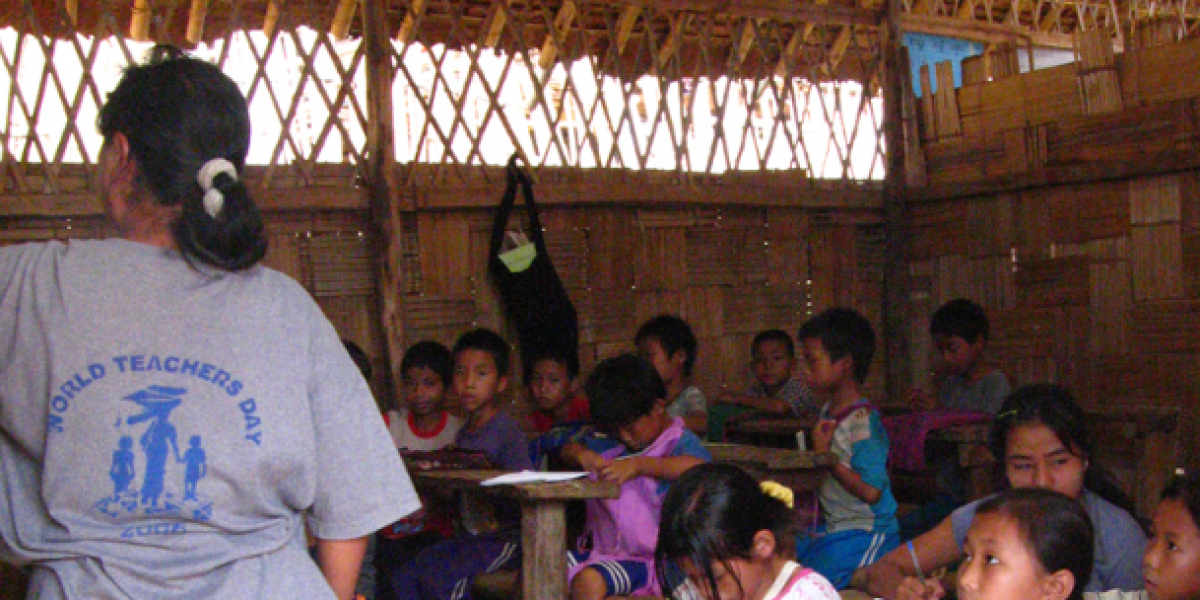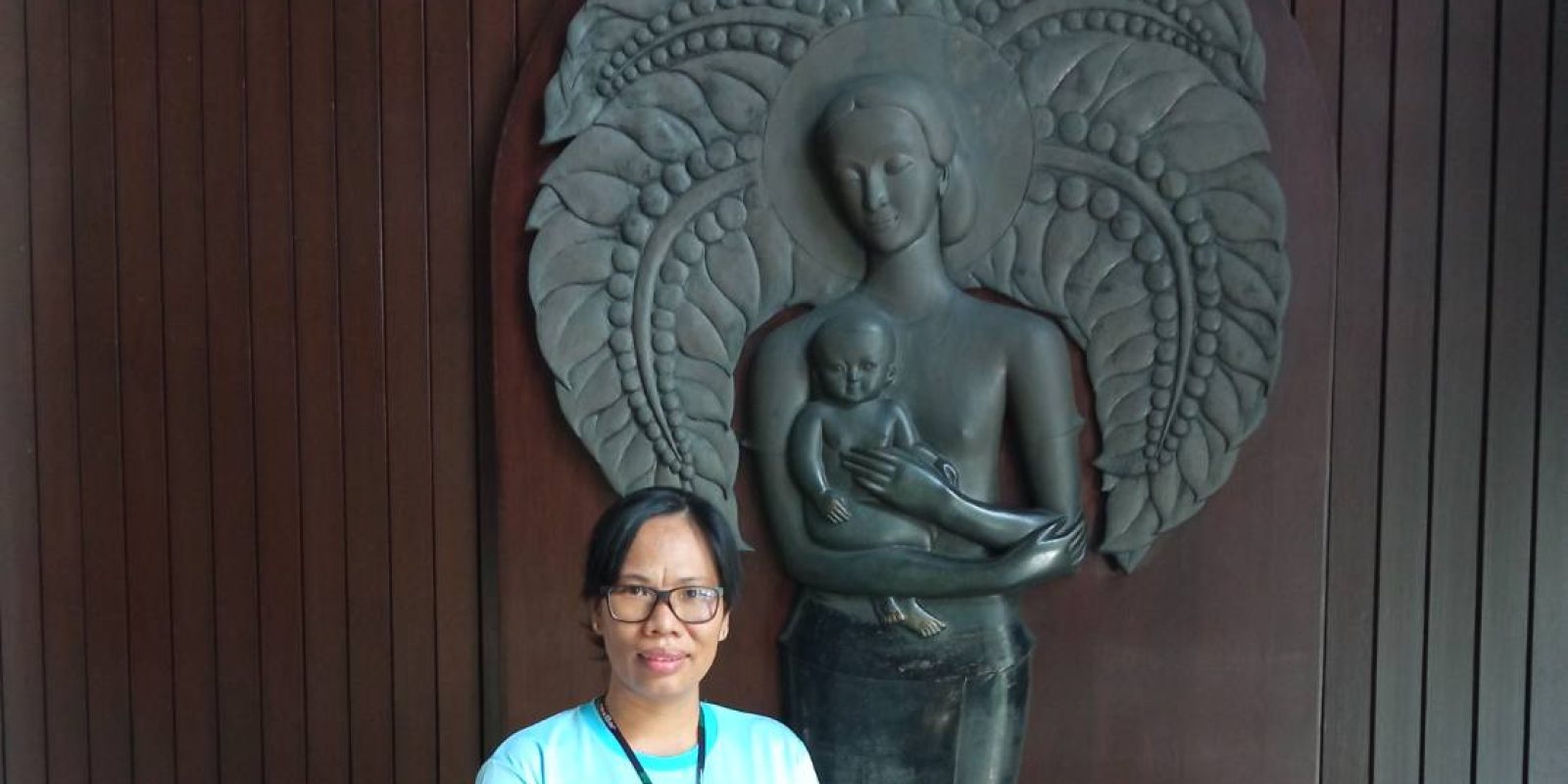Thailand: A new way of being present
06 December 2009|Former JRS regional director for Southern and Eastern Africa, Joe Hampson SJ

Although Jesuit Refugee Service had its official birth as one of Arrupe’s last initiatives in 1980, Jesuits had been involved in refugee and displaced ministry from the start of their history. Ignatius, their founder, had attracted the attention of the Dominican Inquisition in Spain: his teachings to them seemed dangerously heretical, and they claimed Ignatius was a refugee in Rome fleeing from their investigations. After their arrival in Rome in 1537 the early companions of Ignatius were confronted with a severe famine and harsh winter such that many people fled to Rome for help, and among them were the sick and dying. Ignatius was given the use of a house where initially 400 were cared for, but this number later grew to over 3000. All this while the companions were going through the discernment exercise to found the Society of Jesus in spite of considerable Vatican opposition.
After the Society was founded in 1540, Ignatius continued to urge his followers to have concern for the poor, neglected, and those others who had been forgotten or ignored. While he was General, Ignatius’ own style of assistance, whether it be to prostitutes, beggars, or displaced poor from the countryside, was always discreet, considerate and aimed at long-term sustainability through persuading others to get involved in the work.
Like the rest of the world in late 1979, Arrupe was struck by the plight of the Vietnamese boat people, but rather than talk and offer symbolic gestures he wanted the Jesuits to be involved in a practical way. His style of governance had been to listen to many shades of opinion on the social questions of his time before issuing guidance to Jesuits and others. A similar model of consultation was initiated before the Jesuit Refugee Service was established in 1980. In the beginning it was seen as a network, intended to be of help to those Jesuits already in the refugee apostolate, and to encourage others to assist, but soon the interventions and the structures grew in response to need. When JRS started there were about five million refugees — later we recognized and counted other groups of dispossessed people not categorized in 1980: for example, 26 million IDPs and some 12 million stateless persons. However JRS never lost the sense that it is a small organisation whose mission is not to be involved in massive humanitarian interventions but rather to offer a different, personalist service that has its foundation in the experience of Ignatius and the early companions – a service of accompaniment of those who are displaced.
Accompaniment as foundation of JRS work
The etymology of accompaniment is that of breaking bread with someone, and so it is built on the twin ideas of hospitality and sharing a meal. The biblical roots clearly demonstrate this twin foundation as a religious duty. The story of Job declaring that every sojourner will not pass the night without shelter (Job 31:32), I was a stranger and you took me in, says the Jesus of Matthew 25, and Lydia’s insistence in offering hospitality to Paul’s companions when they came to Philippi to establish the first Christian community in Europe – “she would have no opposition” (Acts 16:15) – all point to the centrality of the New Testament law, to love one another as I have loved you, not contradicting but building upon the Deutoronomical injunction to love the stranger (Dt 10:19). Offering hospitality to strangers is not always a natural instinct, if we reflect on the current hysterical outbursts from politicians and opportunists who rail against the threat from outside, the danger from overseas, problem of the stranger-in- our-midst, the security risk from the foreigner, the menace of the Muslim, the spread of the terrorist. Modern discourse even at times seems to contradict the very value of spontaneous and natural offering of hospitality and accompaniment, arguing that modernity and security both require these values to be overlooked in favour of protectionism and isolationism.
Accompaniment then is quite topical, and it is one of the central ideas of JRS: it is both a dimension of all the work undertaken, as well as a specific sectoral activity. “JRS is an international Catholic organisation whose mission is to accompany, serve and defend the rights of refugees and forcibly displaced people” [JRS Charter, #9]. Interestingly, the Charter document was not finalized until some twenty years after its foundation, whereas most organisations have their charter document as the basis of their initial foundation. JRS preferred to use an Ignatian methodology of see-judge-act in the beginning, by building on experience that is reflected upon, keeping the structures light, and preferring to “facilitate the involvement of individuals and communities” first, thereafter “promoting regional and global cooperation and networking on behalf of refugees”, and only thirdly and lastly to “undertake services at national and regional levels with the support of an international office in Rome” [Charter, #9] Even these services provided by JRS to refugees are concentrated locally, with the headquarters merely taking on a support role. Colleagues from other NGOs were always amazed when I described JRS structure, for it seemed to them strange that a Jesuit organisation could be so decentralized in the matter of, say, finance. Almost all international NGOs would have much more centralized systems of finance, fundraising and accounting.
As well as the distinctive feature of decentralization, a key feature of JRS that marks it out from other humanitarian NGOs is the focus on accompaniment. Accompaniment has three overlapping and mutually reinforcing aspects: 1) it is the critical intersect between faith and humanitarian action, 2) it is an expression of essential attitudes within JRS, and 3) it makes unique structural and programmatic demands on the work undertaken by JRS.


